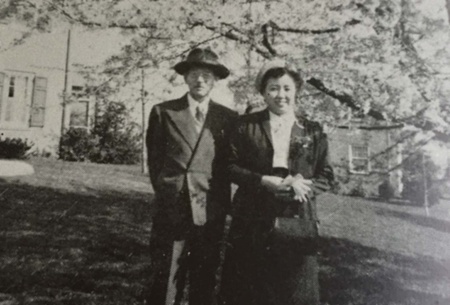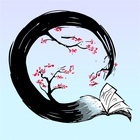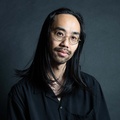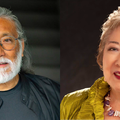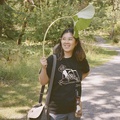This month, we feature poetry in Nihongo (with English translation) from Tomiko Matsumoto and Gennosuke Matsumoto, who were both originally from Chiba and eventually married there, before living in Seattle and later imprisoned in the Heart Mountain, Wyoming concentration camp during World War II. Their poetry here comes through that lens—two short tales of lamentation.
—traci kato-kiriyama
* * * * *
Tomiko Matsumoto was was born on August 30, 1900 in Nakano (current Kimitsu city), Chiba Prefecture, and immigrated to Seattle in the early 1920s. She and her family were imprisoned at Heart Mountain, Wyoming from 1943 to 1945. There, under the poet Shasui Takayanagi, poetry editor of the Kashu Mainichi (California Daily) newspaper, she began studying tanka poetry. In 1955, one of Tomiko’s poems was selected to be read at the utakai hajime, the Emperor’s annual poetry party. Tomiko joined the Uta to Kansho poetry society in 1958, and in 1960 she and her husband Gennosuke published the tanka anthology Mishigan Kohan (By the Shore of Lake Michigan). Her granddaughter, Nancy Matsumoto, has edited the forthcoming English-language translation of the book.
Moonlight
filtering through the trees
onto a clear, flowing spring—
such serene beauty
cannot be found in this country(konoma gakure
waku mashimizu ni
gekkō no
sugashiki sama wa
kono kuni ni mizu)
*This poem was originally presented at the Emperor’s annual poetry party in 1955, for which the theme was “water spring” (izumi). It was published in the tanka anthology Mishigan Kohan (By the Shore of Lake Michigan) in 1960, copyright Nancy Matsumoto.
* * * * *
Gennosuke Matsumoto was born on August 1, 1889 in Fusa, Chiba Prefecture, now part of the town of Abiko. As a young man, he immigrated to Seattle, Washington to work for an import-export store. Some time later, he began a correspondence with the sister of his friend Taisuke Takahashi, a fellow immigrant from Chiba Prefecture. This led to a trip back to Japan to marry Taisuke’s sister, Tomiko. The couple operated a fruit market in Seattle, and after the Depression, a grocery story in downtown Los Angeles. After the bombing of Pearl Harbor, they, their three children, and Tomiko’s mother Iku, were forcibly removed to Santa Anita racetrack, then to Heart Mountain, Wyoming. There, Gennosuke began writing poetry under the pen name Ryokuyo Matsumoto. He was a member of the Araragi poetry society.
Defeat in war, Chicago, August 1945
What secretly
I have prayed for
has now become only a dream—
my native country’s defeat
brings tears to my eyes(hitoshirezu
inorishi koto mo
yume nari shi
sokoku no haisen
ware wo nakashimu)
*This poem was published in the tanka anthology Mishigan Kohan (By the Shore of Lake Michigan) in 1960, copyright Nancy Matsumoto.
© 1960 Nancy Matsumoto




